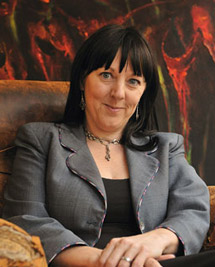Big question: fair play
This week will see thousands of geeks (including .net) descend on Austin, Texas for SXSWi. It’s just one of hundreds of conferences across the world offering insight, inspiration and networking – at a price. But is that price worth paying?

Easy answer: some are and some aren’t. It depends on who you send, and why. On the whole, the best conferences are those that don’t focus too much on teaching new skills or techniques, but on showing what’s possible – the 'how' can be worked out back at the office with a little time and effort. Inspiration is the value – being inspired alongside like-minded people who can trade knowledge, contacts and motivation.
Meeting your peers in development and chatting about what’s exciting right now in the industry is a major motivating factor, so the conference serves not just as demonstration of possibilities, but also as a gathering place for a community.
Andy Hood is executive creative development director at AKQA. He founded and continues to lead the creative development team, which specialises in using rich interface development technologies to deliver world-leading user experiences to the most prestigious brands across a wide range of platforms and devices.

Conferences are definitely worth the admission fees if you're proactive in pursuing your goals and reasons for attending. Each conference has something to offer, but just like planning out the places to see on a vacation, you have to organise your time to optimise the experience.
The networking opportunities alone of meeting up with friends, online acquaintances, prospective clients and speakers can lead to future projects that easily cover the cost of admission. Conferences are also great places to listen and learn business skills and best practices from the top people in the industry, which is information not often found online.
Shane is designer and creative director at 2Advanced Studios
Get the Creative Bloq Newsletter
Daily design news, reviews, how-tos and more, as picked by the editors.

Generally, I think so – assuming you choose carefully. The tricky part is deciding what you want out of them. Are you after the chance to expand your thinking, hone those practical skills or chat with like-minded colleagues?
Personally, I feel the more practical events offer less value, as their content is often readily available and easier digested online or in a workshop. I'd rather see speakers talking about wider topics and experience.
Finally, don't forget the social aspect. Some of the most interesting discussions I've had at conferences have been in a corridor or the bar afterwards!
James is a UX designer, working at Clearleft in Brighton. For over 10 years he's been helping clients improve their online experiences.

Is the most expensive conference necessarily the best conference? Certainly not, and the only way you're going to find out if the admission fee is worth it is if you do your research. Spend time researching the programme, the organiser's reputation, the topics and the speaker line-up. In particular, it's always worth finding out how they source their speakers.
For instance, some web design conferences have been running for many years, are well known in the industry, have great reputations and pick their speakers very carefully, with a rigorous vetting system for speaker proposals. These events are the ones worth paying for; you know you're only going to get speakers worth listening to, on areas that are topical, forward-thinking and innovative. In other words, you know what you're getting for your money. For these big industry events, you'll find heaps of feedback from attendees of previous years on the web to help with your decision of which to attend to fit your own personal agenda.
Some smaller, lesser-known conference organisers, however, charge their speakers considerable amounts, even thousands in some instances, to speak at their events; these are the ones you need to be wary of the cost for. You may discover that most of the speakers that pay for these opportunities are there simply for lead generation and PR purposes. They aren’t sought out for their experience and expertise, and this can lead to a disappointing experience, with speakers more concerned about showcasing their own portfolio and services than actual thought leadership. Delegates are often forced to endure sales pitches from speakers willing to pay for the exposure, whereas the speakers should be selected based on what value they can add to the event.
The other risk these event organisers are taking is running the same event year after year. Without a careful choice of speakers, these conferences often end up with the same agenda and little that’s actually new and inspiring.
Also, don't forget that the cost of a conference includes the opportunity cost of not being at work, and of having to deal with all of your emails when you get back.
Margaret Manning is CEO of international digital communications consultancy Reading Room.
Being in a room with dozens, or hundreds, of people who share the same interest is an incredible feeling – especially for freelancers or designers who work in companies where they’re the only ‘web person’, as it can feel pretty lonely. But this doesn't mean you have to fork out hundreds or thousands of pounds in conference fees, travel and accommodation. Start small: go to local meetups, barcamps and evening events. If you have the budget for it, then by all means try the bigger ones.
Look at the speaker line-up and what each is going to talk about. Attending a conference might be a great opportunity to talk face-to-face with people who you admire, and a chance to pose them questions or debate issues at a more personal level.
I’d also advise to always check with your employer whether they're willing to pay for your tickets, or maybe even expenses. If you present your case cleverly and make a commitment to feed back and apply whatever you learn, you might not even have to pay for it yourself!
Inayaili is a web designer at Canonical, specialising in HTML and CSS.

I can't justify the time and money for most conferences based on the content alone. If you just attend the sessions and then go back to the hotel, it's not worth it. However, if you’re willing to get out of your comfort zone, meet new people and put yourself out there, it can be worth every penny.
Conferences are the perfect opportunity to meet like-minded people, pitch your product or just learn about what others are doing. You never know the value of making 10 new friends at a conference, but more times than not it works out in your favour.
Nick is founder and project manager of Project 83.

Yes, because they provide an invaluable source of new contacts, clients, customers or co-workers. The amount of time you’d spend looking for new clients or a developer with the specific experience you need means that conference worth the price of admission, even if you don't go to any of the talks. The talks are an unnecessary formality at most conferences, in my opinion.
An open standards evangelist and dev.opera.com editor, Chris educates on open standards for Opera.
The web industry is, in my opinion, one of the most open in the working world – and that makes it a great place to work. If you're new to the industry, a web conference is the perfect place to visit other folk, meet your heroes (but always remember that they’re just normal people like yourself), build your professional network and drink a few beers. Hopefully, you’ll also learn a few things along the way.
Of course, if you can't justify the price of a conference or get work to pay, there are now loads of free events held worldwide, so you could always go to one of those. If there’s nothing near to where you live, why not try organising one yourself?
Ross Bruniges is a web developer at Nature.
It depends. I've been to some that are and some that aren't. I've attended (and spoken at) a handful of conferences that were obviously all about raking in the cash; they charge big money and 95% of the talks are sales pitches by the event sponsors.
Thankfully, that's not every conference, and I've been blessed to attend and participate in a number of top-notch events filled with worthwhile sessions led by thoughtful, inspiring presenters. In general, I prefer smaller conferences. The more tracks there are, the less likely it is that the organisers have a cohesive vision for their conference – and without focus, a conference will be mediocre at best.
//BIO//
Aaron is group manager of the Web Standards Project, an Invited Expert to the W3C’s Open Web Education Alliance, a speaker, and an author.
I can only speak for the conferences I produce at Environments for Human. Both our online conferences and our AIGA In Control Web design conferences are different to the usual web design and development conferences.
Our online summits are vertical – meaning that we tackle one subject all day long, giving us the chance to delve into more intermediate and advanced content. At the In Control Conferences, our sessions are longer, we host wrap-up panels at the end of the day and we limit the number of attendees. This makes for a more cohesive, intimate experience for everyone in attendance.
We also go out of the way to curate the content and to create a logical progression, too. My personal pet peeve is when you go to a web design conference and the HTML5 session is at the end of the conference and the jQuery or JavaScript presentation is at the beginning.
Many of the things we do are a result of attending so many web conferences over the years. I guess you could say that we definitely think web design and development conferences are worth the admission fee – but it's important to find one that works for your skillset and your budget.
Chris is the author of CSS Cookbook, co-founder of online conferences at Environments for Humans, education task force co-leader at the Web Standards Project and web content director at AIGA Austin.

As somebody who runs, speaks at and attends numerous events, I believe that conferences are an extremely valuable part of your professional development. As well as an efficient way of keeping up with the latest trends, you can mingle with your peers, share your thinking and, dare I say, network. For knowledge workers like ourselves, it really is important to cultivate a network. You never know if the person you’re talking to at the afterparty could lead to your next project, partnership or hire. So I think it's really easy to justify spending what amounts to a couple of billable days to attend events such as Build, DIBI and dConstruct.
Andy is managing director of Clearleft.
I was fortunate to attend the Adobe MAX conference shortly after the release of CS3. It was expensive, but it has proved to be invaluable. While it was a crash course in all of the new features I needed to learn about CS3, it was also expert tips and tricks and a refresher course in the best ways to use the tools I use every day. The classes and sessions are taught by the very people that write the how-to books you buy at the bookstore and the videos you watch on Lynda.
Considering the cost and the fact that I’m a small business owner, I don't go every year – but the experience has definitely saved me man-hours in the long run, and I hope to attend again in the future.
Paul is a designer and coder at Otterball.

On the whole, yes. Not only do you get the chance to hear talks from industry experts, but conferences also provide an opportunity for networking and meeting people that you otherwise wouldn't get the chance to. They can also be inspiring and the perfect chance to share ideas. The key to providing value to attendees comes in keeping the talks fresh and creative, rather than churning out past content. I've attended Future of Web Design, dConstruct and New Adventures and all were value for money.
By day Rob is studio manager for creative agency Bluegg. The rest of the time he writes for Think Vitamin, Five Simple Steps and drinks too much coffee.

I hate to be on the fence, but I think that it pretty much depends on your situation. From a training perspective, most web conferences really don’t offer the depth of material to be truly useful on a day-to-day basis – that's better coming from workshops.
From a networking and socialising point of view, though, they are useful. It's great to broaden your professional horizons and meet like-minded people. If you're a freelancer, this wider network is crucial in helping you find work, collaborate and feel connected to the industry.
Mark is creative director at Mark Boulton Design.
For me, it's a matter of gauging the price tag – which can vary drastically – against what I expect to get out of the conference. Invariably, the talks tackle new theoretical ideas rather than practical implementations, which are reserved for accompanying workshops at an additional price. Basically, it's up to the attendee to go further with what they learn. Not to be overlooked is the social aspect of the events. Making new contacts and friends is probably the most tangible benefit that I've found.
Ryan is a product evangelist at Headspace and a freelance web designer and developer.
It depends on your expectations. The chances of learning a lot at a large conference are slim. From the perspective of a speaker, it's tough to gauge the experience level of the audience, so the general approach is to avoid real depth of topics.
However, conferences tend to attract people who are driven to do better work, which means that they're probably already doing amazing stuff. If you're looking to find people (both speakers and attendees) like that, conferences are absolutely worth the price of admission.
Daniel is a senior designer at Big Spaceship.
I think that conferences in our industry are like those in the medical profession. Meaning, conferences are a good way to hear about cutting-edge techniques and new work people in your field are doing. It’s up to you as an attendee, though, to research whether or not the things you hear about should immediately be put into practice, or if further learning on your part is required before venturing into new technologies.
When I attend a conference, I do so expecting to learn about things on a concept level, but unless it's a workshop where the speaker is actually building something in front of you, you shouldn’t expect to come away with mastery over any particular area. That way, you know what subject matter you should read up on when you return home, and your boss doesn't expect you to come back from the conference ready to lead the charge on the Next Big Thing.
Nathan Smith created the 960 Grid System, and is a UX developer at Hewlett-Packard. He holds a Master of Divinity degree from Asbury Theological Seminary.

I think so. For me, I find most value in exchanging ideas with industry comrades – that may be in the form of listening to a talk or a lively debate at a local bar. You 'e-know' people through blogs and sites such as Twitter and Dribbble, but it's really nice to put an actual face to the avatar. The friends I've made at conferences are often people I talk to weekly or daily now, and you really can't put a price on stuff like that.
Founder of Paravel, Trent is meticulous, forward-thinking and currently plotting where to go for lunch.
It depends which conference and what you’re looking to do at it. For example, SXSW is an excellent conference for networking and building relationships. Nothing breaks the ice like free booze from Google! However, it’s very expensive. The admission free is reasonable, but the travel expenses are high.
For training and knowledge sharing, again it depends on your field. I've never been to a conference and learnt something I didn't already know with regards to design, as most of the content is available online. I have, though, been inspired by others’ work and also gotten sneak previews of products.
Tom is currently senior art director at Beam Interactive in Boston. He specialises in interactive design, branding and typography. Clients include Virgin, Boost Mobile, TripAdvisor and CBS Sports.

Let's do a little scratchpad maths. Conference ticket: $200. Flight: $200. Hotel: $200. Food and so on: $100. So, a very average conference will run you $700. Is that a lot of money to you or your business? If the conference is boring and you don't meet any potential clients or partners, is it a serious financial setback? If you are seeing the conference as a big potential risk, I'd say don't go. Are you deciding between this and a weekend skiing? Are you thinking of this conference instead of a new wall-mounted bedroom TV? If this is the case, I think you should go to the conference. In my experience, conferences are more fun and inspirational than they are educational or networking opportunities.
Chris is a web designer working at Wufoo.
Not when they are selling sponsored slots with the focus on selling you a product rather than teaching. I've even seen extreme cases where the keynotes were run by sponsors. The sales pitches must be kept off the stage
and in the meeting areas when you’re paying to be there. Events are far better value where the focus is on introducing new concepts and presenting case studies rather than self promotion. Ironically these conferences are often cheaper, or even free in the case of grass roots events such as BarCamps.
Mark develops mobile sites and apps for Brighton-based mobile agency Ribot. His passions include usability, creating one web and supporting creative oddballs.
As with most things, I'd say the answer is: sometimes. When it comes to exposure to new technology or ‘how to’-style conferences, I don't know that I'd go myself. Typically I find the web to be a better resource, or other designers I know and work with.
Where some conferences can become valuable is in sessions focused on workflow, process or new ways of getting things done – not specific things. Attending the UIE Web App Masters Tour was valuable for this reason. Seeing how teams tackle problems and hearing about new ways to prototype or build was useful.
Conferences can also be great networking opportunities, but you have to create that value; conference organisers can only do so much to pull you out of your shell. Get in there and talk to people, ask questions and learn from industry heavyweights. It's unnerving for some, but well worth it.
Jonathan Smiley is a design lead at ZURB, an interaction design and strategy agency in Silicon Valley.
If I were dishonest, I would be forced to say yes, because I’m often paid well to talk at these conferences. But if I were asked would I personally pay the admission fee, the answer is no.
From my experience, conferences and presentations at conferences are very good for students or juniors to get an insight into the practices, techniques and results of more experienced designer/developer professionals. As a conference speaker, you usually can't present a talk about the material you would like to anyway.
My actual problem with attending conferences, spending time or money, is the reason why a significant majority go: for inspiration. What tends to happen is quite a large part of the conference-attending community are then inspired by the same material, which is something to avoid completely. For me I always look for inspiration in what no one is doing or trying, rather than follow another. The very best presentations I ever went to had nothing to do with technologies I use, such as Adobe products, so my recommendation would be to avoid those, but don't tell anybody I said that.
Shane is a commercial Flash developer.
The investment you make in conferences will come back to you tenfold. Learning new topics, hearing new perspectives and meeting new people are essential to the health of your career – and your ego. It’s easy for all of us to get stuck in our ways and to do things the way we’ve always done them, but if we aren’t constantly exposing ourselves to the outside world and challenging ourselves to see things differently, we stop growing and, eventually, stop adding value to our companies.
While the content is important, the most crucial part of a conference is the time spent in the hallways in between sessions and at evening activities. Even if you’re shy, force yourself to approach people and strike up a conversation. Ask what they’ve been pondering recently. Learn their backgrounds. You never know how they might be able to help you in the future – or more importantly, vice versa – so amass as much information about each person as possible, and save it for a rainy day.
Whitney Hess is an independent UI designer.

Design and development conferences are worth the admission fee if they focus more on tutorials and training versus case studies and extended sales pitches. You need to be able to leave the conference feeling like you've grown in your skills, and not simply feel like you know better what other people have done.
Chip is a consultant, developer and designer specialising in PHP development, and a self-proclaimed Mac fanboy who uses Drupal and Symfony as his primary development tools.

Web design and development conferences vary hugely in their admission fees (from free to thousands of pounds), and the admission fee is rarely the sole indicator of quality. There are many free unconferences (barcamps, hackdays and so on) that offer a wonderful opportunity to meet people and learn new things without remortgaging your house. There are also a lot of conferences that cost thousands of pounds that are glorified sales events (look for the word ‘enterprise’ in the conference details and avoid it like the plague). In the middle of the road, there are conferences that may cost a bit to attend but also have a line-up of passionate community speakers and people who are at the top of their fields presenting inspiring talks that are not sales pitches.
Personally, if I learn even one thing at a conference that changes how I make things, makes me more efficient or inspires me and widens my horizons, I feel that it’s worth the price of entry – whatever that price is. And you will be seriously hard-pressed to attend a reputable conference without meeting people, learning things and being inspired in ways that can fundamentally affect your life.
There are many conferences you can attend without spending a dime, some that you have to pay for but which are worth every penny, and some that are ridiculously priced and will bore you to tears with glorified sales pitches. A site like lanyrd.com should help you separate the wheat from the chaff.
Aral is a user experience designer and developer.

Thank you for reading 5 articles this month* Join now for unlimited access
Enjoy your first month for just £1 / $1 / €1
*Read 5 free articles per month without a subscription

Join now for unlimited access
Try first month for just £1 / $1 / €1

The Creative Bloq team is made up of a group of art and design enthusiasts, and has changed and evolved since Creative Bloq began back in 2012. The current website team consists of eight full-time members of staff: Editor Georgia Coggan, Deputy Editor Rosie Hilder, Ecommerce Editor Beren Neale, Senior News Editor Daniel Piper, Editor, Digital Art and 3D Ian Dean, Tech Reviews Editor Erlingur Einarsson, Ecommerce Writer Beth Nicholls and Staff Writer Natalie Fear, as well as a roster of freelancers from around the world. The ImagineFX magazine team also pitch in, ensuring that content from leading digital art publication ImagineFX is represented on Creative Bloq.
